This article was co-authored by Allison Broennimann, PhD. Dr. Allison Broennimann is a licensed Clinical Psychologist with a private practice based in the San Francisco Bay Area providing psychotherapy and neuropsychology services. With over a decade of experience, Dr. Broennimann specializes in in-depth psychotherapy to provide solution-focused treatments for anxiety, depression, relationship problems, grief, adjustment problems, traumatic stress, and phase-of-life transitions. And as part of her neuropsychology practice, she integrates depth psychotherapy and cognitive rehabilitation for those recovering after traumatic brain injury. Dr. Broennimann holds a BA in Psychology from the University of California, Santa Cruz, and an MS and Ph.D. in Clinical Psychology from Palo Alto University. She is licensed by the California Board of Psychology and is a member of the American Psychological Association.
There are 9 references cited in this article, which can be found at the bottom of the page.
This article has been viewed 2,422,927 times.
Some memories can be so painful that you just want to forget them. While it is not possible to erase memories from your mind, there are strategies that you can use to make a memory less prominent. You can also do things to change the way a memory makes you feel and to replace unpleasant memories with new pleasant ones. Keep in mind that it is not always possible to forget a memory, so you may want to consider talking to a therapist if unpleasant memories are interfering with your life.
Steps
Forgetting Memories
-
1Figure out what you would like to forget. Before you can forget a memory, you will need think about the details of that memory. Doing so might be hard, but it is necessary. Write out your answers to the following questions to figure out the details of the memory:
- What happened?
- Who was involved?
- Where and when did it happen?
- What else was going on?
- How did you feel?
-
2Think about what bothers you the most about the memory. Your next step is to pinpoint the most upsetting parts of the memory. Getting to the root of what bothers you the most will help you figure out what you need to forget. Write these specific things down so that you can work on forgetting them.
- Keep in mind that you can't forget the existence of your ex-girlfriend or ex-boyfriend, but you can forget particular dates, events, or sense memories. For example, you might be able to forget the smell of a perfume, your first date, or something that your ex said to you.
- If you find yourself dwelling on traumatic experiences, list the people who harassed you, the specific locations that caused you grief, and other sensory details like the smell of the lunchroom, the locker room, or the gym.
Advertisement -
3Erase the memory with a ritual release. You can use the details that you have identified to perform a ritual release. A ritual release is a mental exercise that may help you to forget a memory.[1] To do a ritual release, all you have to do is turn your memory into a mental snapshot and imagine that you are setting it on fire.
- In your mind, picture a part of the memory that you want to forget. Try to imagine this detail like a picture. Then, imagine that you are setting that picture on fire.[2] Imagine the edges of the photo turning brown and curling up, then turning black and crumbling away. Imagine the fire burning your mental memory picture until the picture is gone.
- You could also try using another image in place of the actual memory. For example, you could imagine your bully as a Honda Civic sinking into a pond or as a freight train slowly crashing into a wall.
- This may not work for some people, as old memories never truly leave the brain.
-
4Remove your "trigger objects." Certain objects or images may trigger a painful memory for you and make it harder to forget the memory.[3] If you have any objects or pictures that trigger bad memories for you, then put them somewhere out of sight or consider getting rid of them.
- For example, you may want to get rid of anything that reminds you of your ex, including photographs and gifts your ex gave you.
- Do a scan of all of your senses when you're trying to figure out what's triggering a memory. Anything can trigger memory—it might be the light at a certain time a day, a phrase someone else used to say, or a certain smell, for instance.[4]
-
5Consider hypnosis. You might also find that hypnosis can help you to forget unwanted memories. Hypnosis requires you to enter a relaxed state so that you will be more open to suggestions.[5] Look for a professional hypnotist in your area if this is something that you would like to try.
- Keep in mind that not everyone can be hypnotized, so it might not work for you. For those who can be hypnotized, there is also the chance that the effects will only last a short time.[6]
Replacing Memories
-
1Try thinking about unpleasant details while doing pleasant things. One way to overcome the bad feelings associated with a memory is to teach yourself to associate the unpleasant memory with good things.[7] Your goal is to make these painful memories less painful through positive association.
- Do something that makes you happy while thinking about a bad memory. For example, you could reflect on the embarrassment you felt when you broke up with your partner while listening to soothing music. Or, take a comfortable bath with scented candles while thinking about a time that you lost your job.
- If positive association does not seem help, then you can try also listening to loud white noise to drown out painful memories. Consider surrounding yourself with radios all turned to static, or other white noise generators while meditating on the painful memories.
-
2Make some new memories. Another great way that you can get rid of old memories is to get out and form some new ones. Even if you're not doing things related to the memory you'd like to forget, forming new memories will push the things you want to forget out of the way.[8] Some things you can do to start forming new memories include:
-
3Find ways to improve on bad memories. You may be able to replace a memory that you want to forget by building new memories that are similar to the old one.[9] Try to seek out ways to experience positive things that are similar to the memory that you want to forget. After a while, your mind will start crossing its pathways and the original memory won’t be as strong.
- For example, if you want to forget a trip you took to San Francisco, consider making another trip to San Francisco or take a trip to somewhere near there. Visit Berkley, Oakland, or Palo Alto. During your trip, buy new t-shirts, take new beach photos, and check out new restaurants.
- If your ex's cologne is stuck in your mind, head to the fragrance counter. Smell every single kind of men's cologne you can, clogging your mind with new scents and different kinds of fragrance.
- Go on dates. If you are bothered by memories of an ex, maybe going on a date will help you to move on and make some new good memories.
-
4Consider talking to a therapist. If you are unable to forget or overcome negative feelings because of a bad memory, then it might be a good idea to seek the help of a therapist. A therapist can help you to deal with your emotions regarding a memory so that you can move on with your life.
Expert Q&A
Did you know you can get expert answers for this article?
Unlock expert answers by supporting wikiHow
-
QuestionWhy do I keep recalling bad memories?
 Allison Broennimann, PhDDr. Allison Broennimann is a licensed Clinical Psychologist with a private practice based in the San Francisco Bay Area providing psychotherapy and neuropsychology services. With over a decade of experience, Dr. Broennimann specializes in in-depth psychotherapy to provide solution-focused treatments for anxiety, depression, relationship problems, grief, adjustment problems, traumatic stress, and phase-of-life transitions. And as part of her neuropsychology practice, she integrates depth psychotherapy and cognitive rehabilitation for those recovering after traumatic brain injury. Dr. Broennimann holds a BA in Psychology from the University of California, Santa Cruz, and an MS and Ph.D. in Clinical Psychology from Palo Alto University. She is licensed by the California Board of Psychology and is a member of the American Psychological Association.
Allison Broennimann, PhDDr. Allison Broennimann is a licensed Clinical Psychologist with a private practice based in the San Francisco Bay Area providing psychotherapy and neuropsychology services. With over a decade of experience, Dr. Broennimann specializes in in-depth psychotherapy to provide solution-focused treatments for anxiety, depression, relationship problems, grief, adjustment problems, traumatic stress, and phase-of-life transitions. And as part of her neuropsychology practice, she integrates depth psychotherapy and cognitive rehabilitation for those recovering after traumatic brain injury. Dr. Broennimann holds a BA in Psychology from the University of California, Santa Cruz, and an MS and Ph.D. in Clinical Psychology from Palo Alto University. She is licensed by the California Board of Psychology and is a member of the American Psychological Association.
Clinical Psychologist Every single moment of our lives is stored in long-term memory in our bodies. If you're not sure what's bringing them up, try doing a scan of your senses and listen to what your body is telling you. Is the light reminding you of something? Is it a smell or a flavor? Sometimes it might even be the time of day or certain shade from the clouds.
Every single moment of our lives is stored in long-term memory in our bodies. If you're not sure what's bringing them up, try doing a scan of your senses and listen to what your body is telling you. Is the light reminding you of something? Is it a smell or a flavor? Sometimes it might even be the time of day or certain shade from the clouds.
References
- ↑ https://www.psychologicalscience.org/news/releases/to-savor-the-flavor-perform-a-short-ritual-first.html
- ↑ https://www.jneurosci.org/content/39/18/3551
- ↑ https://www.psychologytoday.com/us/blog/intense-emotions-and-strong-feelings/201203/emotional-memories-when-people-and-events-remain
- ↑ Allison Broennimann, PhD. Clinical Psychologist. Expert Interview. 11 December 2020.
- ↑ https://www.apa.org/monitor/2011/01/hypnosis
- ↑ https://my.clevelandclinic.org/health/treatments/22676-hypnosis/
- ↑ https://www.edpsycinteractive.org/topics/behavior/classcnd.html
- ↑ https://healthysleep.med.harvard.edu/healthy/matters/benefits-of-sleep/learning-memory/
- ↑ https://www.helpguide.org/articles/healthy-living/how-to-improve-your-memory.htm
- ↑ Allison Broennimann, PhD. Clinical Psychologist. Expert Interview. 11 December 2020.
About This Article
To purposefully forget things, start by making a list of the memories you want to forget and what bothers you about them. Next, identify objects or images that trigger your bad memories, such as photos of your ex or a particular scent, and remove these things from your environment. You can also try a mental exercise like a ritual release to help you let go of your memories, or you can seek professional help from a therapist to guide and support you through the process. For tips on replacing your bad memories with good ones, read on!
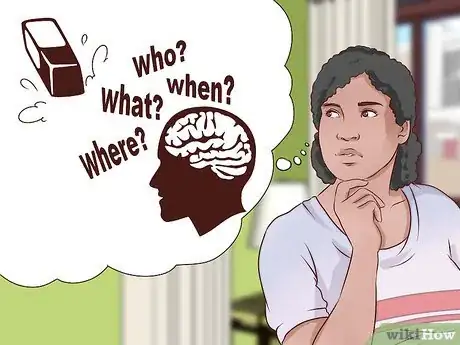
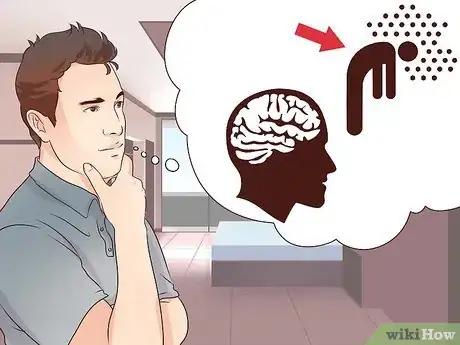
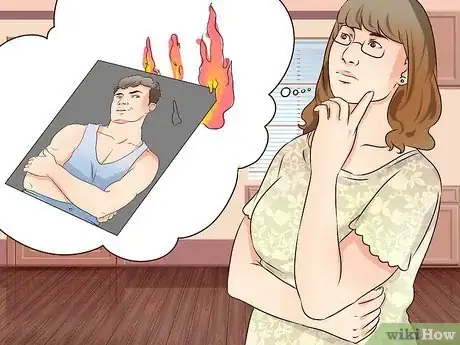
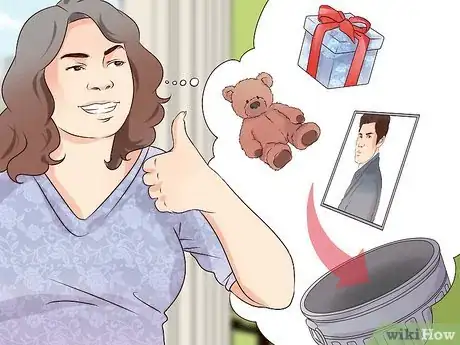




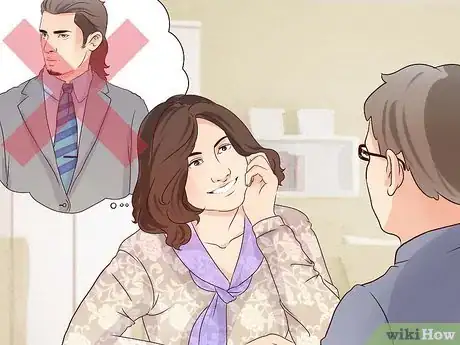
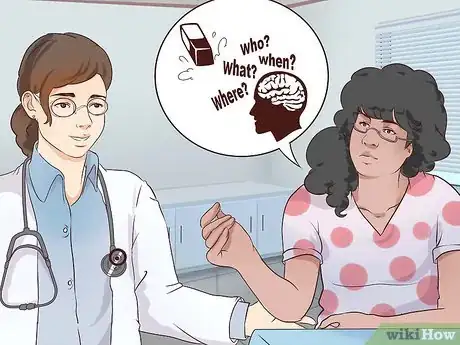






























































Medical Disclaimer
The content of this article is not intended to be a substitute for professional medical advice, examination, diagnosis, or treatment. You should always contact your doctor or other qualified healthcare professional before starting, changing, or stopping any kind of health treatment.
Read More...